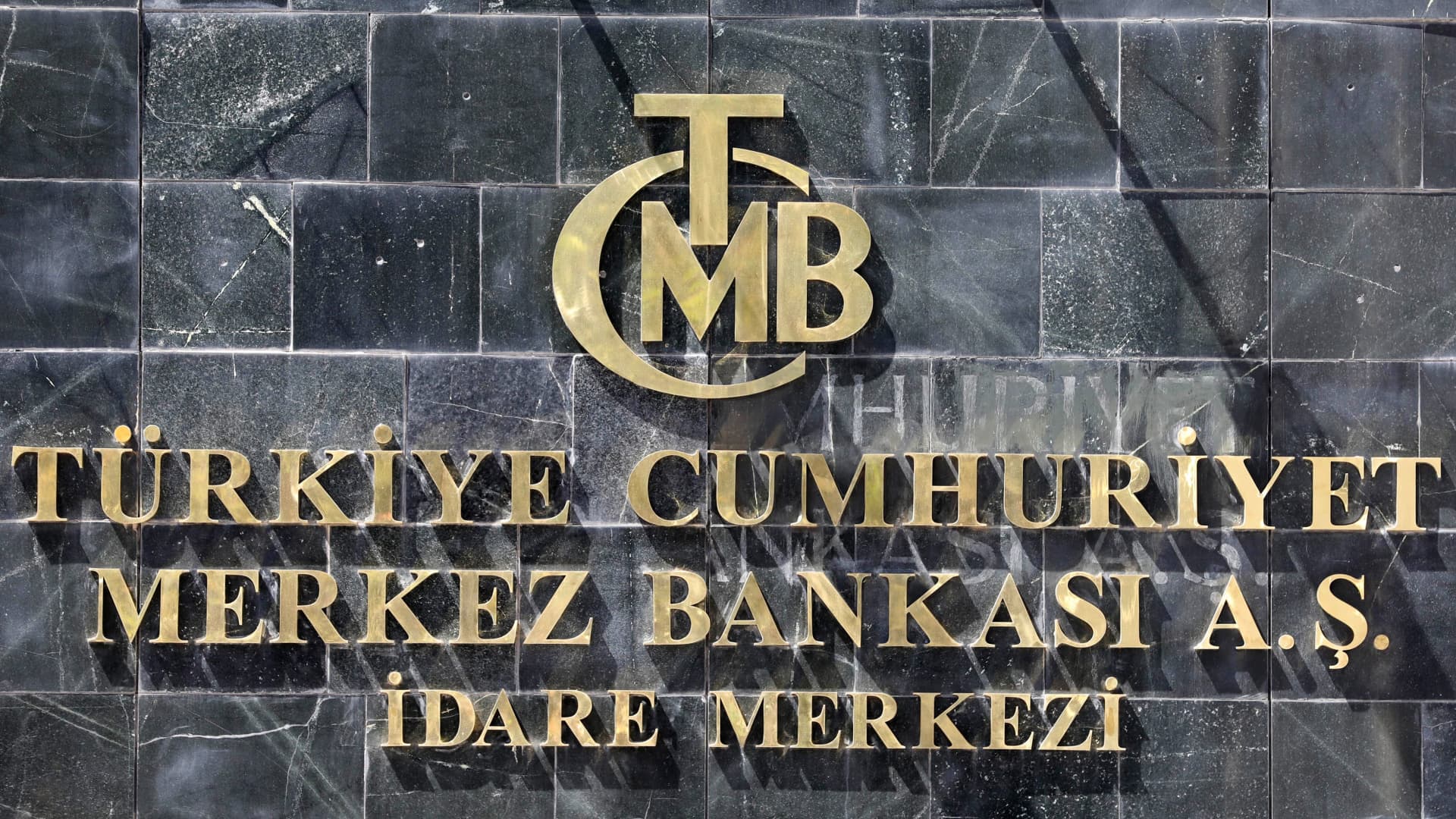A picture taken on August 14, 2018 shows the logo of the Turkish Central Bank at the entrance to its headquarters in Ankara, Turkey.
ADEM ALTAN | AFP | Getty Images
Turkey’s central bank is opting for a different method of monetary tightening as it struggles with rising inflation after previously signaling its cycle of interest rate hikes was over.
The institute sent an instruction to lenders, effective Friday, instructing them to place portions of their required lira reserves in blocked accounts.
That has pushed up lending rates and lowered lending limits at some banks, with some lenders lowering their commercial lending limits to 100,000 lira, or $3,100, Reuters reported on Thursday.
“Some banks have stopped lending. Some banks are even recalling the loans they have already granted. This will lead to a further liquidity squeeze,” Arda Tunca, an Istanbul-based economist atpolitikYol, told CNBC.
“If a central bank is willing to reduce the inflation rate, liquidity conditions should definitely be constrained, but the methodology is of utmost importance,” he said. “If the methodology is wrong, market expectations cannot be managed.”
In fact, Turkish bank stocks fell following Thursday’s news. Economic data platform Emerging Market Watch posted on X describing the central bank as taking “another tightening step beyond reserve requirements.”
Analysts at London-based Capital Economics made similar observations.
“New quantitative and credit tightening tools were announced last month,” the company wrote in a research note. “Last week, the CBRT tightened restrictions on lira loan growth, a move that would likely have a similar impact to a rate hike.”
Meanwhile, Turkey recorded its first monthly decline in its reserves since May 2023 in January, according to balance of payments data released this week.
Annual consumer price inflation in Turkey rose to 67.07% in February. The strong numbers have fueled concerns that Turkey’s central bank, which suggested last month that its painful eight-month interest rate hike cycle was over, may need to return to tightening.
“Pressure is increasing on Turkish policymakers ahead of local elections on March 31 as capital inflows have slowed and foreign exchange reserves are falling again,” Capital Economics wrote. “We doubt the central bank will raise rates next week, but we are increasingly convinced that there will be at least one more rate hike in the second quarter.”
—CNBC’s Dan Murphy contributed to this report.
Source link
2024-03-15 17:58:48
www.cnbc.com









